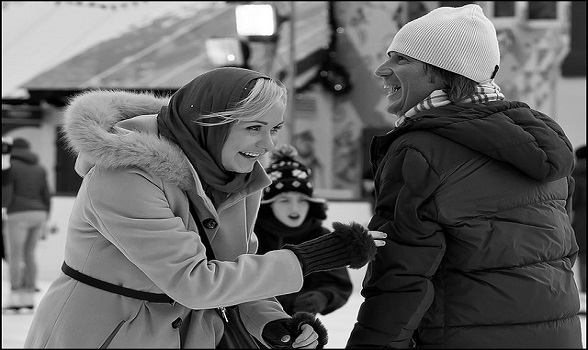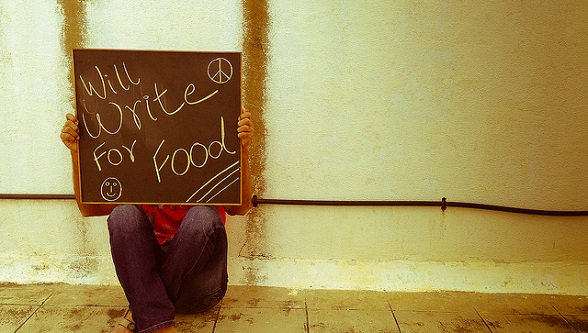 Why We Read
Why We Read
An Annotative Essay on: Netherland, by Joseph O’Neill
Different books are read for different reasons. Textbooks are read so that we can be informed in what matters most to us: math, biology, philosophy, etc. Suspense and thriller books so that we can be entertained by what interests us: vampires, the mafia, war, etc. Romance novels so that we can be enthralled in what eludes us: love, passion, desire, etc. And the classics so that we can be left pondering why certain things matter, interest, and elude us.
|
“Yet something eluded the book itself which kept it from entering such a category.”
|
What about a book, though, which fits into none of the previously outlined categories? Or what about a book that fits into all of them? Or half of them? This is where Netherland lays. Although I thoroughly enjoyed the book by Joseph O’Neill, when trying to classify it I ran into trouble. Well written and a page-turner, though not as entertaining as a Dean Koontz or Stephen King novel, nor as thought provoking as a classic like Catcher in the Rye; where then, does that leave a book, and all others like Netherland? It is classics which contain ‘All of the above.’ Netherland, I believe, had the makings of a classic. It had suspense, mystery, it informed me in subtle ways about life and philosophy, it enthralled me, though briefly, in passion and desire and things which elude the typical life. All things which make a classic. Yet something eluded the book itself which kept it from entering such a category. Thus, I believe Netherland joins the throws of bastard children. It fits nowhere. And this is where it gave the most instruction.
Even though I believe Netherland to be a good, though, unremarkable book, there was a lot to be learned. Both from the parts I enjoyed and disliked. The first issue, and eventual learning, I dislodged from Netherland was the art or dis-art of description. There were many descriptions which made me stop and appreciate the care and revisions in which the author must have gone through to create such a finely tuned well-crafted sentence; while simultaneously, there were several descriptions that I simply skipped over because they were simply, or un-simply, too much.
“As I repeatedly went forth with him and began to understand the ignorance and contradictions and language difficulties with which he contended, and the doubtful sources of his information and the seemingly bottomless history and darkness out of which the dishes of New York emerge, the deeper grew my suspicion that his work finally consisted of minting or perpetuating and in any event circulating misconceptions about his subject and in this way adding to the endless perplexity of the world.”
The above is merely an example of an eighty word sentence that the author used to get across a simple idea. It is one of many such examples. My issue with such writing is that if there’s a forty-five word sentence about how angry a person is, but by word eight I realize that the author is simply describing a basic state of anger; I say to myself “I get it,” and simply skip ahead. Why would I need to read the other thirty-seven words?
|
“I can only imagine if O’Neill had managed to write the entire book in such an unassuming yet powerful way.”
|
I’m reminded, as well, of a one hundred and seventy-nine word sentence that appeared in Netherland. Now, I have to believe that there had to be an easier, more flowing way, to say what O’Neill felt he needed to say than in a one hundred and seventy-nine word sentence. I find myself asking: why? Why did this writer deem it necessary to write in such a garrulous way? Was it simply to show off his aptitude for verbosity? And the thing is, the sentence in question, is unnecessary. Though very well written, it perhaps could be used stand alone or in a shorter piece. But in a novel length work, when working through a story and trying to get to the meat of the matter, and trying to be entertained, and trying to learn, and trying to be enthralled, such long-windedness comes across as literary arrogance and, perhaps even, laziness. I’m reminded of the Einstein quote, “If you can’t explain it to a six year old, you don’t understand it yourself.” If Einstein insists on conveying quantum physics as simple as possible, then why is it that authors insist on convey emotions as complex as possible? Can anger, hatred, love or happiness truly be more complicated than the cosmos?
I’m also reminded of Faulkner who self-admittedly wrote some of his work, in such a way, only for the sake of making it as confusing as possible. I have to, again, ask myself why? What is the point of such an endeavor? I understand the aspect of forcing a reader to figure out something on their own. And I support such a thing when done right, and when necessary. But those moments need to come intermittently and only work best, or seem to have a purpose, when it involves something meaningful and worthwhile. This certainly wasn’t the case for Faulkner and it often wasn’t the case for O’Neill. The additional problem that arose regarding this in Netherland was that O’Neill often got it right when writing his descriptions, which made it so much more frustrating when he got it wrong. A few of his descriptions which I believe were perfectly written and which I pictured perfectly in my mind (both happen to be only fifty-one words):
“He believed in owning the impetus of a situation, in keeping the other guy off balance, in proceeding by way of sidesteps. If he saw an opportunity to act with suddenness or take you by surprise or push you into the dark, he’d take it, almost as a matter of principle.”
“Our lecturer, a destroyed-looking man in his sixties, appeared apologetically before us, and I am certain that a compassionate understanding tacitly arose among the students that we should do everything to assist this individual, an agreeable and no doubt clever man whose life had plainly come to some kind of ruin.”
|
“If a powerful work can be created using 50,000 words, then I find myself wondering why it sometimes takes people 150,000 or more.”
|
I can only imagine if O’Neill had managed to write the entire book in such an unassuming yet powerful way. Surely, then it would have made it into my category of classics. But alas, O’Neill had left me skipping sentences and entire paragraphs because even though I enjoyed the style and language they were written in, I found them unnecessary. This led me to my first lesson from the novel and into an inquiry of my own writing.
One of the things I’ve constantly struggled with, and something I believe all writers struggle with, is the appropriate dimensions of a description. How much is too much and how much is too little? The word count for some of my favorite books ranges between 35,000 to 65,000 words—and you can bet that in those books I didn’t skip over a single paragraph, sentence or word. In books such as those, which in the scheme of things have such miniscule word counts, there has to be a severe economy of words—but done in a way without losing anything. If a powerful work can be created using 50,000 words, then I find myself wondering why it sometimes takes people 150,000 or more. This is what I struggle to do in my own writing. Often, when editing my pieces I struggle with the descriptions. I will write a nice basic two sentence long description, erase that, and then write a beautiful three paragraph description, replace that with an abrupt ten word description, delete the description all together, and then in the end, try to find something in the middle. I never feel happy with what I’m left with, and that’s my struggle: trying to find out how to say something as simple, yet eloquently as possible. I can’t say how specifically, or precisely what, Netherland has taught me regarding this; however, since the book provided, in my mind, perfect examples of both extremes, it has made me more aware of it and left me pondering over ways to find the happy medium.
For more annotative essays and other book related stuff click here.






 So, I’ve decided to get myself an MFA in creative writing. I’m applying to four different universities and I’ve been killing myself for the past few weeks trying to write my personal statement. I’ve been scouring the web, reading books, talking to people and doing everything possible. I’ve done over a dozen drafts and here’s what I’ve learned so far:
So, I’ve decided to get myself an MFA in creative writing. I’m applying to four different universities and I’ve been killing myself for the past few weeks trying to write my personal statement. I’ve been scouring the web, reading books, talking to people and doing everything possible. I’ve done over a dozen drafts and here’s what I’ve learned so far: